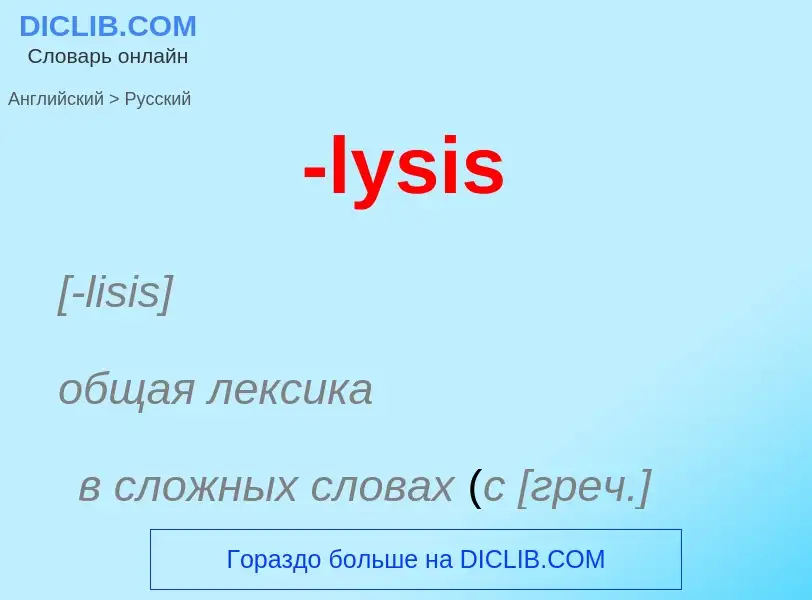Traducción y análisis de palabras por inteligencia artificial ChatGPT
En esta página puede obtener un análisis detallado de una palabra o frase, producido utilizando la mejor tecnología de inteligencia artificial hasta la fecha:
- cómo se usa la palabra
- frecuencia de uso
- se utiliza con más frecuencia en el habla oral o escrita
- opciones de traducción
- ejemplos de uso (varias frases con traducción)
- etimología
-lysis - traducción al ruso
[-lisis]
общая лексика
в сложных словах (с [греч.] корнями) имеет значение распад
разложение
['laisis]
общая лексика
лизис
распад
существительное
медицина
лизис
Definición
Wikipedia
Lysis of Taras (; Greek: Λῦσις; fl. c. 5th-century BC) was a Greek philosopher. His life is obscure. He was said to have been a friend and disciple of Pythagoras. After the persecution of the Pythagoreans at Croton and Metapontum he escaped and went to Thebes, where he became the teacher of Epaminondas, by whom he was held in the highest esteem. There are, however, serious chronological difficulties with his being both a disciple of Pythagoras and the teacher of Epaminondas. Some of the commentators and doxographers have failed to distinguish between the two different anti-pythagorean revolutions: the first one around ~500, when Pythagoras himself died, and the second one fifty years later. This could clarify the source of the chronological incoherence.
Lysis was credited as the actual author of a work which was attributed to Pythagoras himself. Diogenes Laërtius quotes from an undoubtedly spurious letter from Lysis to Hippasus as an authority for some statements concerning Damo.

